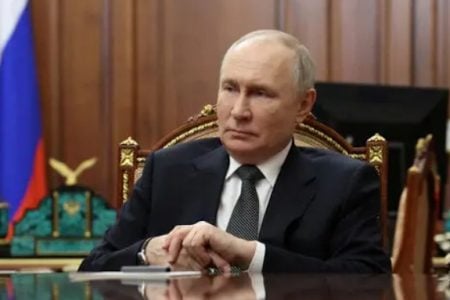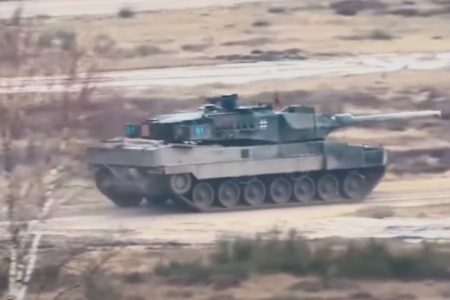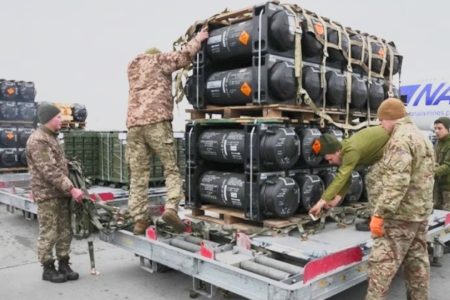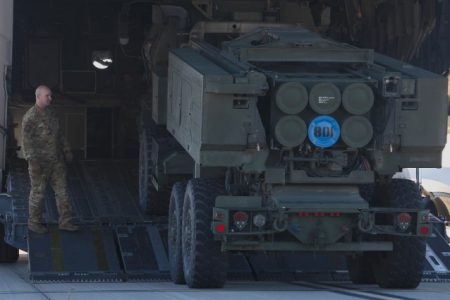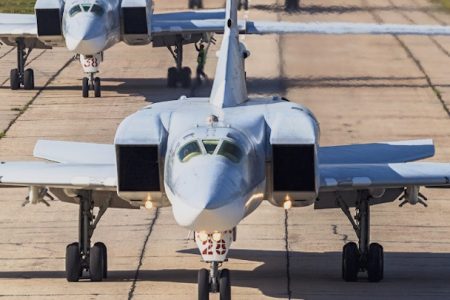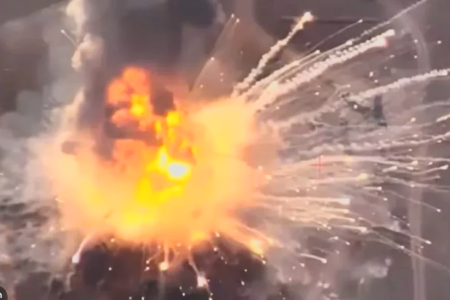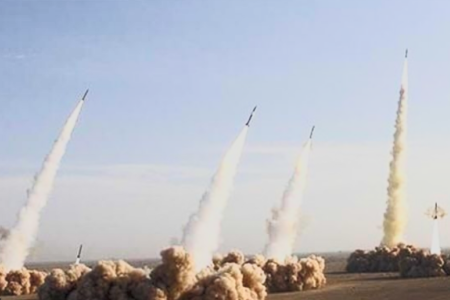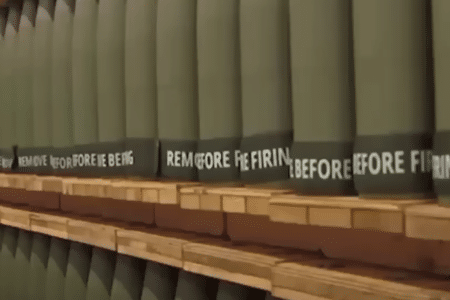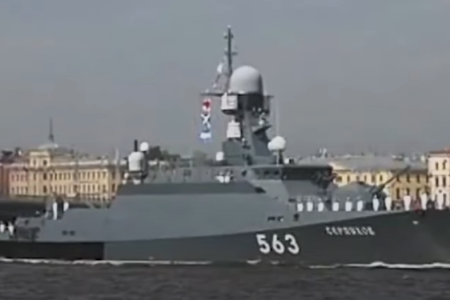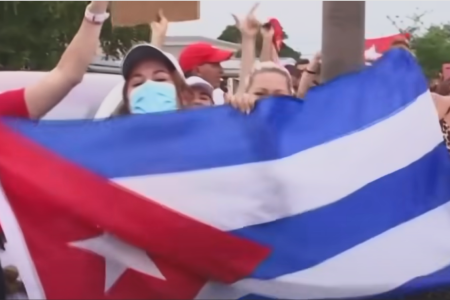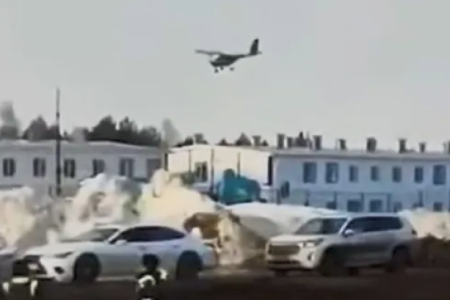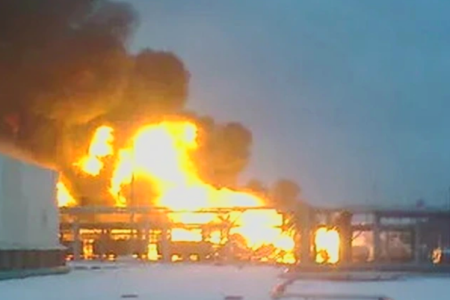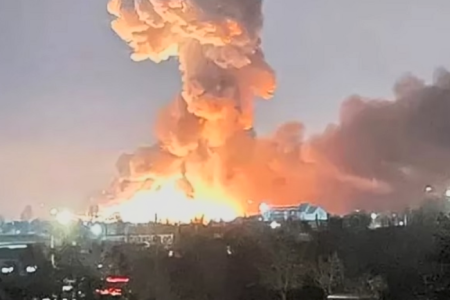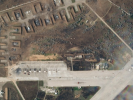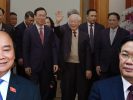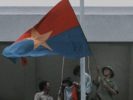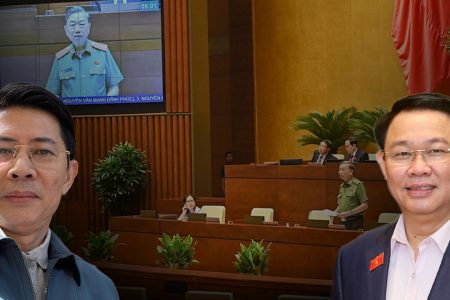
Vietnam’s Deputy Defense Minister Nguyen Chi Vinh responded to a Chinese representative’s speech at an online conference of senior defense officials in the region, saying that the East Sea (South China Sea) issue was causing “concerned” but not “reassuring us.”
After Chinese representative Song Yanchao, deputy director of China’s International Military Cooperation Office, spoke at an online meeting of ASEAN Senior Defense Officials in Hanoi on July 7, Gen. Vinh said Vietnam welcomed China’s “appreciation of ASEAN’s centrality as well as its desire to have a good relationship with ASEAN and handle the South China Sea well.”
“However, it cannot be said that the South China Sea issue is reassuring but it is clearly causing concerns now, which was shown at the ADSOM (ASEAN Defense Senior Officials Meeting Plus) conference we held it a month ago,” Gen. Vinh said.
At the ADSOM conference held in mid-May, defense officials said that the situation in the South China Sea recently had new and more complicated developments. The conference stated: “If the parties are not calm, restraint and strengthen cooperation to resolve disagreements, tension can escalate and change the status quo of disputes, not conducive to peace and stability. in the area.”
On July 8, at a meeting of regional defense officials in the framework of the ASEAN Summit held online, Mr. Vinh made the same remark, shortly after Vietnam on behalf of the 10 member states of the Southeast Asian nations make a joint statement emphasizing the resolution of disputes by international law.
“While countries are focusing on COVID-19 prevention and control, hot spots continue to exist and cause concern in the region and around the world,” Deputy Minister Vinh said at the ASEAN Security Policy Conference held in Hanoi on July 8. “Among them are some challenges such as environment, cybersecurity, nuclear issue on the Korean peninsula, terrorism, maritime security- including the hot situation in the South China Sea.”
Earlier on June 26, Vietnamese Prime Minister Nguyen Xuan Phuc, speaking at the opening of the ASEAN Summit, said that “while the whole world is struggling to fight the Covid-19 pandemic, there are irresponsible actions and violations international law, affecting the security and stability of the environment in some areas, including ours,” Mr. Phuc did not specifically mention anyone but according to Dr. Le Hong Hiep of ISEAS-Yusof Ishak Institute of Southeast Asia, “clearly we understand that it implied Chinese behavior.”
The head of the Vietnamese government urged ASEAN countries to cooperate to curb actions that complicate the South China Sea.
Gen. Vinh also called on “broad cooperation” and the need for “building trust to address regional security issues on the basis of international law by means of harmonization.”
China in recent months has intensified tensions in the South China Sea region, such as the sinking of fishing vessels by Vietnamese fishermen, conducting military exercises and announcing the establishment of administrative districts in the South China Sea for the Hoang Sa (Paracels) and the Truong Sa (Spratlys). These moves are opposed by Vietnam, the US and the international community.
Many delegates attending the ASEAN Regional Forum Security Policy Online Conference in Hanoi also expressed concern that during the time of the COVID-19 pandemic, there were still countries taking unilateral actions affecting the security environment and stability in the region. They welcomed the Statement of the Chairman of the 36th ASEAN Summit, according to the Ministry of Defense Web Portal.
In a joint statement of ASEAN currently chaired by Vietnam on June 26, the United Nations Convention on the Law of the Sea is referred to as an affirmation of the rule of law in resolving disputes between claimant states in the South China Sea.
The US also welcomed the statement and Secretary of State Mike Pompeo warned on June 27 that “China is not allowed to treat the South China Sea as its maritime empire.”
China has not officially voiced before the statement of ASEAN or the US Secretary of State, but the media said that the support of the US-made Vietnam and other ASEAN countries are more confident in strengthening their claims in the South China Sea and that the US will complicate the situation in the region.
“The relationship between the big countries is the job of the big countries, we respect that relationship if it complies with international law, it benefits the peace of the region and respect the small countries in ASEAN,” said Gen. Vinh on July 7.

Vietnam’s Deputy Defense Minister, Senior Lieutenant General Nguyen Chi Vinh, on July 8, hosted an online ASEAN conference on security policy.
A total of 26 delegations attended the meeting held in Hanoi, including representatives from non-ASEAN countries such as Japan, New Zealand, and the EU.

For a long time, ASEAN has focused on peace and stability in the region and has sought to address the conflict in the South China Sea.
Since 2002, ASEAN has been trying to develop a Code of Conduct (COC) in the South China Sea with China and a preliminary draft was agreed in 2018.
Waves in the South China Sea
This year, the ASEAN Regional Forum Security Policy Conference (ASPC) took place at a time when Chinese troops conducted exercises in the disputed Paracels.
Vietnam and the Philippines have strongly criticized the exercise and feared China’s claims of further progress.
The US has also responded to the show of strength by exercises of two aircraft carriers in the South China Sea.
Speaking at the conference, Gen. stated “traditional and non-traditional security challenges” alongside the Covid-19 pandemic.
“There are also many challenges in the region that concern us. Such as cybersecurity, the Korean Peninsula nuclear issue, terrorism, and maritime security, of which the South China Sea is one of a hot spot,” VOV quoted Gen. Vinh as saying.
Attending a meeting from Japan, Deputy Defense Minister Nishida Yasunori said unilaterally changing the status quo was unacceptable.
“We believe in an open, rules-based maritime order in the South China Sea,” Mr. Yasunori was quoted by VietnamNet.
The EU has the same opinion.
“The EU also supports ASEAN’s view of establishing a rule-based order and rules-based maritime governance. This is the only way to maintain trust and consensus,” said Guillaume Décot, Co Foreign Affairs Agency, European Union (EU), quoted by Vietnamese media.
Vietnam will want to accelerate the negotiation of the Code of Conduct in the South China Sea at today’s conference in Hanoi, although it is unlikely to make any progress.
It is likely that China will continue to abandon negotiations, as it does not gain any benefits from the Code of Conduct in the South China Sea.
It is thought that tensions will continue to rise between the US and China in the South China Sea, while ASEAN is still at a standstill on how to regulate the regional situation.
Thoibao.de (Translated)




